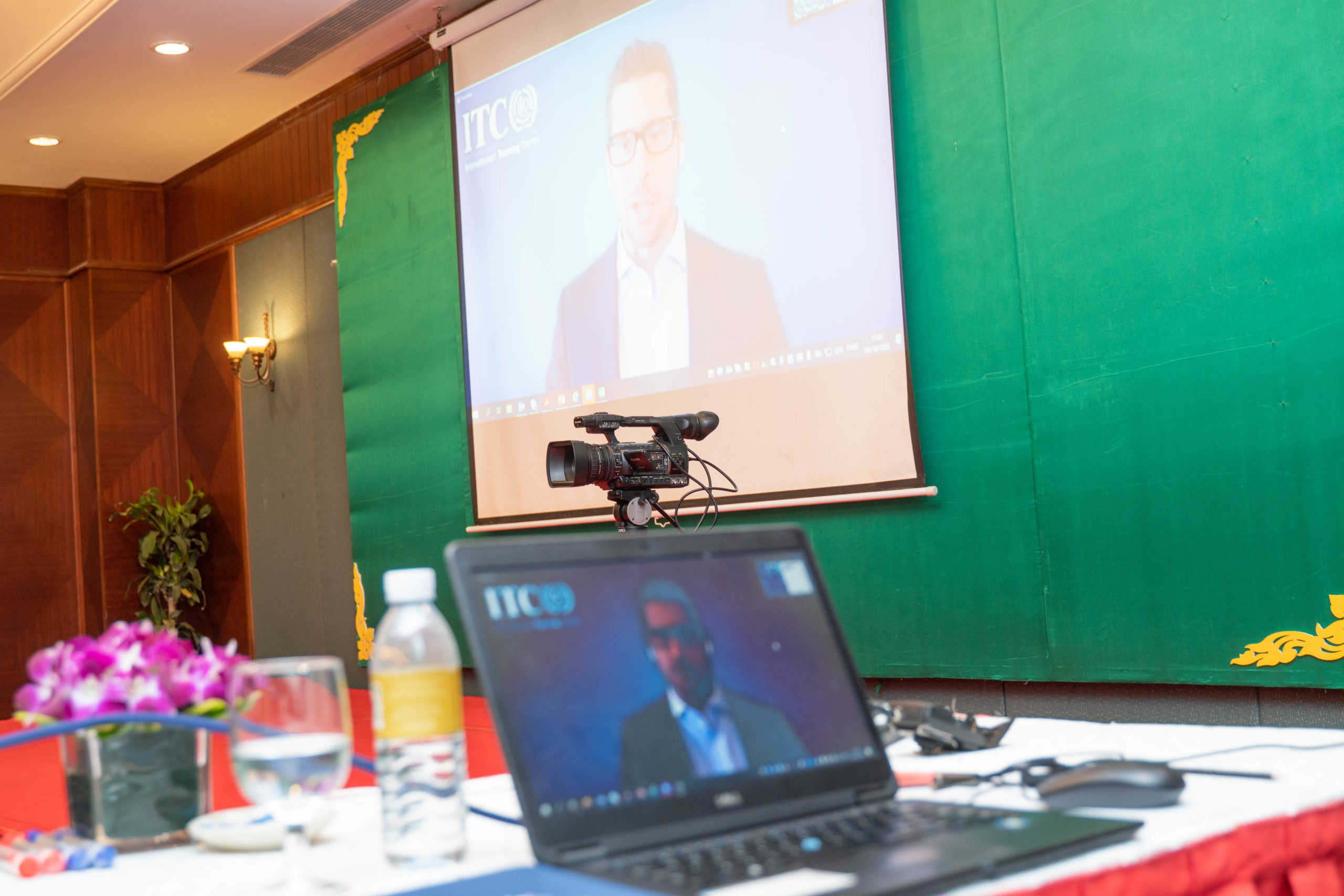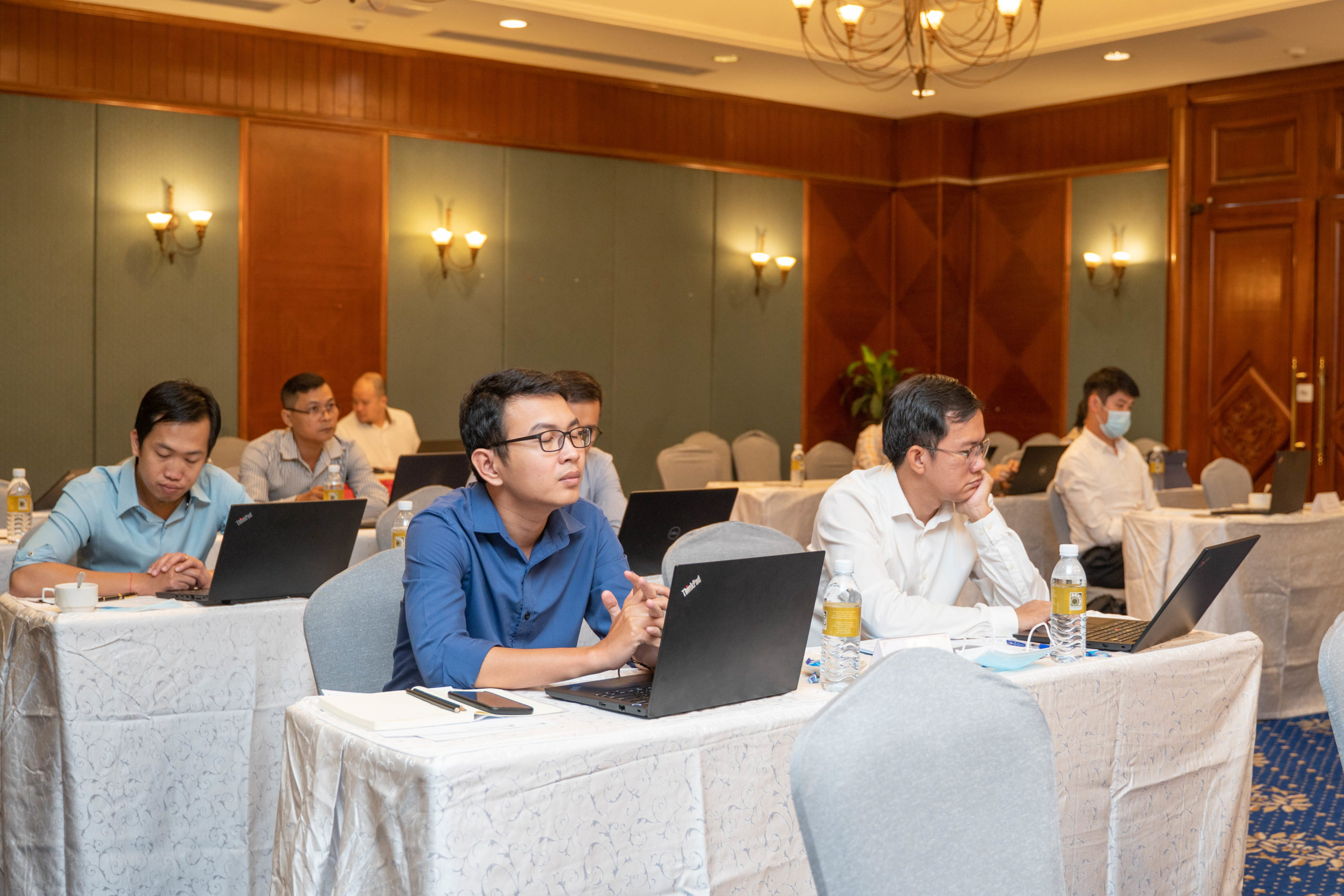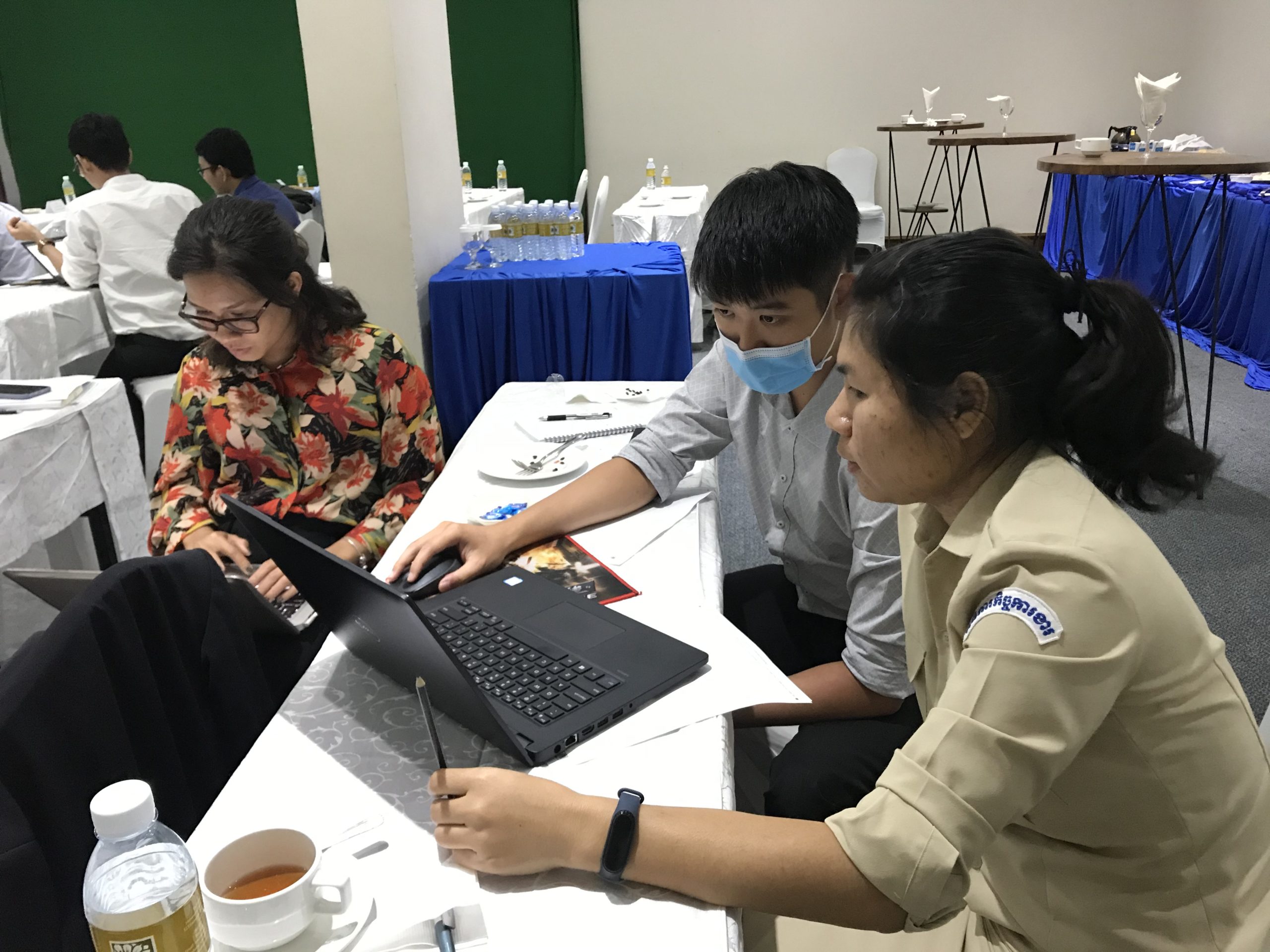Through the project and in collaboration with the Asian Development Bank (ADB), 12 Cambodian government officials from the Ministry of Economic and Finance (MEF), Ministry of Social Affairs, Veterans and Youth Rehabilitation (MoSAVY), the General Secretariat of National Social Protection Council (GS-NSPC), and the National Social Security Fund (NSSF) were supported to participate in the course.
The course was provided by the International Training Centre of the ILO (ITC-ILO) and encompassed 8 weeks of learning from October 6 to December 18, 2020. This included live webinars, compulsory readings and completion of individual and group assignments.
Overview
Participants were introduced to the concept of social budgeting as a formal method allowing the combination of clearly structured financial information on social protection systems with social protection modelling. This included basic social accounting as well as model-based projections. The students were taught to understand the link between social budgeting, fiscal space and performance reviews.
The training activity taught participants analytical methods of modeling social protection schemes such as universal benefits, social assistance, family allowances, pensions and short-term benefits. This included all aspects required to mathematically map revenues, expenditures and reserves of the different types of schemes. On that basis, participants were introduced to designing models of social protection schemes, including their interrelationships with the demographic and economic environments.
Objective
The course aims at strengthening the analytical skills of participants in a coordinated shorter- and long-term planning of national social security systems, as well as a set of associated quantitative planning tools. The focus of the analysis was on ensuring affordable financing for reasonable and adequate overall floor of protection and comprehensive social security systems and on making choices between different benefits with the aim of achieving progressively universal social protection, and on the allocation of national funds taking into account the costs and benefits of different options.
By the end of the module, participants are expected to understand and participate more actively in the social budgeting process of their social protection system.
Methodology
The course is based principally on the modeling and social budgeting methodologies developed by the ILO through policy papers, technical cooperation projects and training activities. The course is also partially based on the “ILO Quantitative methods in social protection series” as well as a number of ILO technical guides, researches and policy papers.



